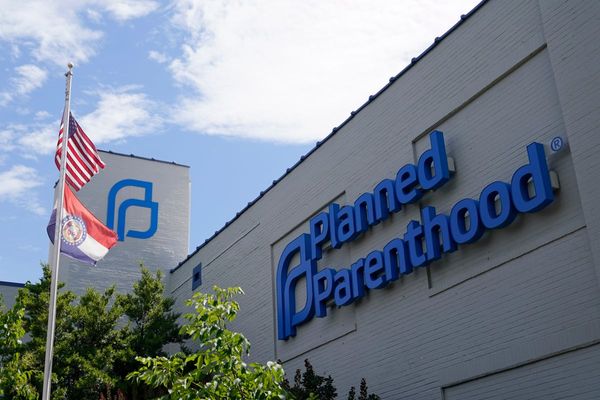Battery electric vehicles like Teslas are fast, sleek, jewelrylike cars that capture the imagination. Hybrid cars, at least in the U.S., often bring to mind the Toyota Prius, long seen as a dawdling, egg-shaped vehicle for shuttling back and forth to Trader Joe's.
But quietly amid all the BEV hype, automakers' hybrid fleets took broad strides forward. Car buyers flinched at the challenges of EV ownership. And sales of hybrid cars, led by Toyota Motor and Honda Motor, ramped up to outpace those of the flashier electric vehicles.
Now carmakers are in overdrive to respond as analysts take a red pen to their BEV forecasts.
The revision in consumer preferences, and the expense of making and selling battery electric vehicles, has forced General Motors and Ford Motor into an abrupt shift. Both legacy automakers are interrupting their highly publicized and expensive transitions to battery EVs to reemphasize hybrid cars.
Tesla, struggling against rising strength of EV competitors in China led by BYD, risks losing market share as hybrids surge. More precarious startups including Rivian and Lucid, which sell electric vehicles in low volumes and have no hybrid models to ride out the storm, face a darker outlook. And the change could signal the death knell for the weakest of the EV players, most notably Fisker.
The most recent models of hybrid cars strengthen the technology's image. They offer eye-popping performance and mileage claims. In other words, they bust the old hybrid image of being underpowered and overpriced.
"You have vehicles with great fuel economy, as hybrids have always had, but the latest hybrids are also just better vehicles," said Keith Barry, an editor at Consumer Reports' Auto Test Center in Colchester, Conn.
Hybrid Vehicle Growth
Hybrid vehicles took six spots in Consumer Reports' list of the top 10 vehicles for 2024. Four were Toyota hybrids.
In March, the U.S. Department of Transportation made a nod to changing market dynamics when it unveiled new rules on fuel economy and vehicle emissions. The rules will boost sales of gas and hybrid vehicles into early next decade and delay EV rollouts.
Automakers are suddenly offering a much broader spectrum of affordable hybrid cars and trucks. A decade ago, the hybrid choice was between a Prius and a few wonky hatchbacks. Some offered plug-in hybrid models, known as PHEVs. Today's car buyer has hybrid options across categories — trucks, minivans, midsize or large SUVs, and small or luxury sedans. An increasing number of those vehicles offer PHEV options.
On top of that, improved dependability means lower repair and service costs. Barry considers today's hybrid vehicle a no-brainer for consumers.
"There is almost no reason not to buy a hybrid, if a hybrid version of the vehicle is available," he told Investor's Business Daily.
Hybrid Cars Outpace EV Growth
In 2023, hybrid and EV sales in the U.S. each crossed 1 million for the first time. Hybrid sales rose 65% vs. a 46% gain for EV sales, according to Edmunds data.
During the first quarter, Toyota's overall sales jumped 21.3%. But within that number, sales of the hybrid Camry soared 142.7% vs. an overall Camry sales increase of 18.6%.
Honda posted its strongest Q1 in three years, with total company sales up 20.7%. Honda doesn't break out specifics, but overall electrified vehicle sales — which include battery EVs, plug-in hybrid EVs and other hybrids — jumped more than 25% vs. Q1 2023. Honda did note that its total electric vehicle sales, a number that includes hybrids, slowed in March vs. a year earlier.
The total market share of conventional hybrid cars and plug-in hybrids grew to 9.1% in 2023. The EV share rose to 6.9%. Meanwhile, traditional vehicles with internal combustion engines fell to 84%, Edmunds says.
The car info site expects the hybrid share to grow further in 2024. Automakers sell a total of around 16 million new cars in the U.S. each year.
Toyota And Honda Dominate Hybrid Car Sales
Toyota, long the hybrid leader, still dominates. Its electric vehicle sales — nearly all hybrids, with a smattering of BEVs and fuel cells — climbed 30% to 657,327 in 2023.
In terms of growth rate, Honda blew past Toyota. Its sales more than tripled to 293,640.
"We positioned the hybrid as the most premium powertrain ... the highest performing and the highest fuel economy, so that people would aspire to have it," Honda spokesperson Chris Martin said.
After a complete redesign, the hybrid CR-V and Accord models swelled to more than a fifth of Honda sales last year.
Ford hybrid sales for 2023 jumped 25% to 133,743, thanks to the Maverick and F-150 hybrid trucks. On Thursday, Ford said it would push the launch of a new three-row EV model two years, to 2027.
Ford said overall sales rose 7% in the first quarter. EV sales leapt 86% for the quarter, with hybrid sales up 42%.
GM, which currently offers no U.S. hybrid models, saw total Q1 sales slump 2%. Battery EV sales were less than 3% of overall sales.
Stellantis more than doubled its hybrid sales for 2023, but reported a 10% overall sales decline in Q1. Plug-in hybrid electrics were the bright spot, up 82% during the period. Korea's Kia and Hyundai saw robust hybrid growth in 2023 and for the first quarter as well.
"The adoption of hybrids and plug-in hybrids show that consumers are interested in saving money on fuel," said Barry of Consumer Reports.
Leader In Hybrid Cars
Toyota, which launched its groundbreaking Prius in 2000, doubled down on its Prius model last year.
The all-new 2023 Prius debuted to reviews calling it both powerful and stunning. Many people saw the old Prius as solid but boring. The 2024 Prius touts combined city/highway mileage of 57 miles per gallon. The Prius Prime claims up to 127 mpg, and zero-to-60 miles-per-hour acceleration of 6.6 seconds.
Just for comparison, the 1968 Shelby Mustang GT500KR muscle car clocked a 0-60 time of 6.9 seconds.
Though the redesigned Prius is widely seen as a success, the heyday of Prius sales is over. Toyota expects annual sales of about 35,000 units, according to comments made by the company's U.S. vice president of marketing to Road & Track late last year. That's after a long, slow decline from the model's top sales of more than 230,000 units each in 2012 and 2013.
The Honda CR-V, Toyota RAV4 and a host of new entrants helped lift hybrid sales from a dip in 2022 to cross 1.2 million vehicles in 2023. Much of that came from Japanese and Korean automakers adding hybrid options to existing nameplates.
Analysts say Toyota and Honda didn't try to convince consumers they could pull off a new trick. Their hybrid cars just delivered on what their brands are known for: quality and reliability.
"They make great products that just happen to be hybrids," said Tu Le, founder of Sino Auto Insights.
And while Toyota says it is now expanding into EVs, CEO Ted Ogawa bluntly told Automotive News in March that he would rather buy (EV regulatory) credits than "waste" money on electric vehicles.
Shift to Electric Vehicles
GM committed in 2017 to shift entirely to electric vehicles, setting a timeline to phase out gas and diesel vehicles entirely. That followed a pledge by Volkswagen to spend $20 billion on driving EV battery power across its product lineup. A few months later, Ford Motor doubled its spending on EVs to $11 billion over three years. Honda and Volvo followed a similar course.
But many consumers remain leery of the steep costs and slow charging speeds of battery EVs, as well as the limited availability of charging stations. Homeowners normally must pay to have charging stations installed. Renters in all but the newest of apartments must charge their electric cars at work or at nearby, often expensive commercial sites.
The fear of getting caught with a dying battery far from the nearest charging station — commonly called range anxiety — remains very real for many potential EV buyers or renters.
So after a frustrating half-decade, which included the chip-driven auto shortages in the Covid pandemic, the big U.S. automakers are backtracking. Ford is diverting investments from EVs to hybrid cars and trucks.
GM, which killed the Chevy Volt in 2019, says it will bring hybrids back, starting with plug-in hybrid versions of some models. The company has not yet committed to specific models or a timeline for introductions.
Meanwhile, Detroit will pay a hefty price for jumping too far, too soon toward an all-electric future.
Ford and GM will fight to ramp up their hybrid design and production as Toyota and Honda look to extend their leads. The first-ever hybrid Tacoma truck and Civic car are set to arrive this year, among the many new hybrids hitting the road.
Small Hybrid Cars And Crossovers
While a lot is in flux, one thing is clear. Le at Sino Auto Insights said jumping straight from internal combustion engines to a full battery-electric strategy was "a bridge too far" for Ford and GM management.
As automakers return to hybrids after overestimating their EV capabilities, Le advises that they "re-familiarize themselves" with small cars and crossovers.
Over the past few years, many automakers didn't just fall behind on hybrid autos. They also abandoned a thriving pocket of the market: smaller vehicles.
"If GM or Ford could come out with a hit at $30,000 or $35,000, they would have a little ocean" of demand, Le said.
Toyota sold 136,924 hybrid Prius, Corolla and Camry cars in 2023. Honda sold 96,323 hybrid Accords.
In its latest quarters, Toyota saw big double- and triple-digit profit gains, due in large part to demand for hybrid cars. Stellantis and Honda also delivered record profits on EV and hybrid sales.
Toyota stock is up 71% in the past year. Stellantis is up 50%, even after a sharp two-week pullback. That compares to gains of 37% for Honda, 29% for GM and 9% for Ford. Over this period, Tesla stock is down 8%.
Tesla, GM and Ford all saw earnings decline in the latest quarter, hurt by the EV slowdown.
Technology Advances In Hybrid Cars
For many drivers, hybrid cars hit a sweet spot. They produce lower emissions than a gas-fueled car. And they sidestep entirely the range-anxiety dread of electric cars.
Conventional hybrid cars combine a gas engine, an electric motor (or motors) for low speeds, and a battery pack to power the electric motor. The gas engine recharges the battery pack, usually along with a system called regenerative braking.
Plug-in hybrids, which sell in far smaller but growing numbers, lean more in the direction of a full EV. Though the vehicles are similar to a standard hybrid, their battery packs can be charged at plug-in stations, reducing the need for recharging via internal combustion driving.
The underlying architecture has not changed a lot from a decade ago, the experts who spoke to IBD said. But consumers see a big value in the fossil-fuel backup.
Benefits Of Hybrid Vehicles
The new Prius Prime is a plug-in hybrid. One of Toyota's most fuel-efficient cars, its owners report an average 127 miles per gallon in combined city/highway driving.
On a full battery and tank of gas, it can travel 550-600 miles. On batteries alone, it gets 44 miles of city driving, outdoing the old Prime by 19 miles.
Those bonus miles allow the average commuter to get to work and back on battery power alone.
The latest crop of hybrid vehicles defy conventional wisdom, Barry said. Testing by Consumer Reports showed the new hybrids are quicker and more fun to drive than gas-powered cars.
The idea that hybrids come with higher costs and long paybacks is also being upended.
"We're seeing some hybrid vehicles that are actually less expensive or the same price as the nonhybrid version of the same exact vehicle," Barry said. Examples include the Ford Maverick and Lexus NX.
In 2015, hybrids typically took eight years to pay for themselves through fuel savings. Now the payback period has been cut in half, aided by higher gas prices and better mileage ratings, Barry said.
On average, hybrids cost $42,541, which is less than either gas or electric vehicles, Edmunds says. Conventional hybrids do not qualify for federal tax credits, while some EVs and plug-in hybrids do. (Find out which vehicles qualify for EV tax credits.)
Longer EV Transition
Hybrid cars were seen as a transitional step to full electrification. That is still the case, but a new reality is settling in.
"It's looking like that transition may take longer," said RBC Capital Markets analyst Tom Narayan. "Hybrid vehicles and plug-in hybrids have a role to play."
As EV demand cools, Narayan finds some automakers are better positioned to pivot to hybrids — Stellantis, in particular.
In the U.S., the Ram, Dodge and Jeep parent is already making a mark. It more than doubled plug-in hybrid sales last year, with Jeep's Wrangler and Grand Cherokee SUVs leading the charge.
Narayan told IBD that he especially likes Stellantis' and BMW's adoption of a "flexible architecture," which can accommodate combustion, hybrid and electric powertrains. That gives the automakers' manufacturing options when market winds change.
On the other hand, GM and Ford use dedicated EV platforms, which limit flexibility.
Both make hybrids, but GM only does so overseas — specifically in China, at least for now.
'Inevitable' EV Journey
The U.S. auto giants are at pains to assure shareholders they can navigate an uncertain landscape.
"Margins on hybrids are closer to internal combustion engines, much higher than EV margins, " Ford CEO Jim Farley said on a Feb. 6 earnings call.
However, he added, "the journey on EVs is inevitable in our eyes."
As for Tesla, it could lose share as hybrids gain, Narayan warns. And he fears the EV startups will fare "far worse" because they are losing money.
In fact, Rivian, Lucid, Fisker and Sweden's Polestar have seen layoffs mount and assembly lines slow. On March 14, Fisker reportedly neared a bankruptcy filing as Lucid posted miserable financials and cut 10% of its workforce. Lucid shares are down 65% in the past year. Rivian has dropped 30%, Polestar 54% and Fisker, more than 99%.
Market For Electric Cars Is Still Evolving
The market momentum for now favors Toyota, Honda and hybrid cars, trucks and SUVs. But the experts who spoke to IBD cautioned against any rush to judgment.
"This is a real inflection point in the industry, these next few years," Consumer Reports' Barry said. "Automakers have made some big bets, and it will be interesting to see how they pay off."
Given fickle consumer tastes, Toyota and Honda's hybrid championship could backfire in the long run. GM, Ford and Volkswagen could prove prescient in their early embrace of electric vehicles.
Tesla, by staying the course as consumers swing toward hybrids, could seal its EV dominance. But BYD and several other leading Chinese EV makers may have some say in the matter.







